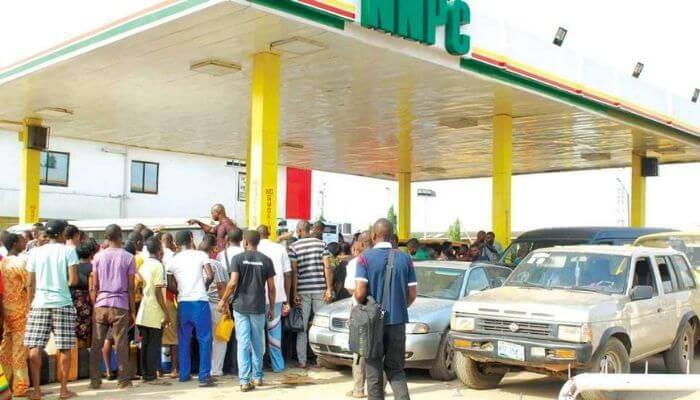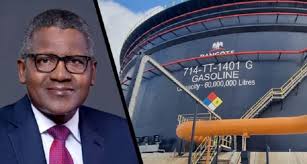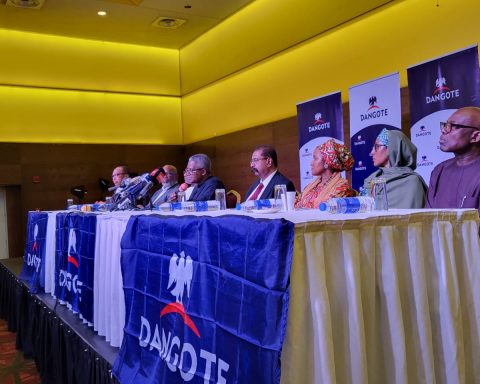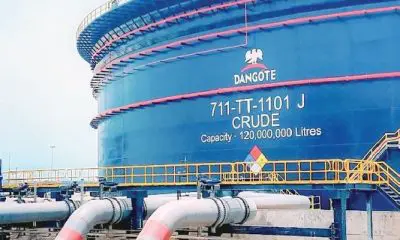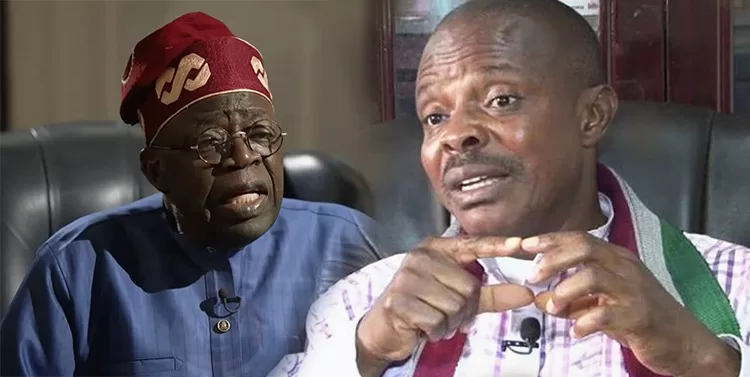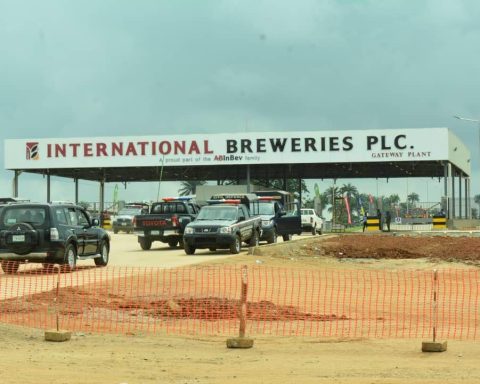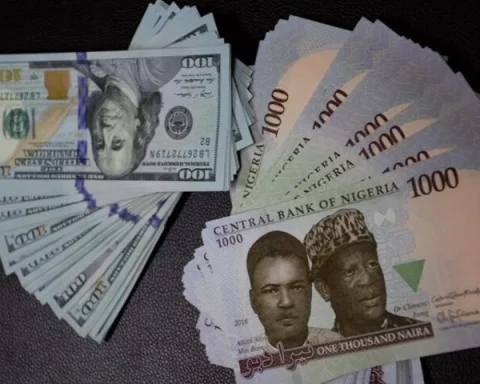The price of Premium Motor Spirit (PMS), commonly known as petrol, could drop to about N300 per litre, with the commencement of large-scale production by the Dangote Petroleum Refinery and other local Modular refineries.
This was the statement made by operators of modular refineries on Sunday.
Join our WhatsApp ChannelThe Crude Oil Refinery Owners Association of Nigeria (CORAN), representing both modular and conventional refinery companies, emphasised that adequate crude oil supply to local refineries is crucial for achieving this price reduction.
The association pointed out that foreign refineries are currently profiting from Nigeria’s reliance on imported petroleum products.
“A lot of companies today benefit from the importation of petroleum products at the expense of Nigerians,” said Eche Idoko, the Publicity Secretary of CORAN. “If we begin to produce PMS today in large volumes, provided there is adequate crude oil supply, I can assure you that we should be able to buy PMS at N300/litre as the pump price. Why make Nigerians buy it at almost N700/litre when you know that if you allow refineries to work, the price will come down?”
Idoko argued that the price drop is feasible despite the fact that crude oil, the raw material for PMS, is priced in dollars. He cited the example of diesel prices, which decreased significantly when the Dangote Refinery started production.
“We were selling diesel for N1,700 to N1,800/litre, but as soon as Dangote Refinery started production, he brought down the price to N1,200/litre. What other proofs do you need? As I speak to you now, there is every tendency that before December, diesel prices will drop further,” Idoko explained.
READ ALSO: Investors Withdrawal Looms For 20 modular refineries Over Crude Oil Supply
On 18th May, 2024, Prime Business Africa reported that Aliko Dangote, Africa’s richest man, declared that Nigeria would no longer need to import petrol starting June this year, following the laid-down plans of the Dangote Refinery. Dangote also mentioned that his refinery could meet West Africa’s petrol and diesel needs, as well as the continent’s aviation fuel demand.
“Right now, Nigeria has no cause to import anything apart from gasoline (petrol) and by sometime in June, within the next four or five weeks, Nigeria shouldn’t import anything like gasoline; not one drop of a litre,” Dangote stated at the Africa CEO Forum Annual Summit in Kigali.
Currently, Nigeria has 25 licensed modular refineries, with five in operation producing diesel, kerosene, black oil, and naphtha. However, many refineries face challenges due to the unavailability of crude oil, which has stalled funding from financiers.
“Only about five of our members have completed their refineries. The others are having a major challenge. This challenge is that the people who are supposed to finance them have not disbursed financing for construction because they want some level of guarantee that if they finish the refinery, they are going to get feedstock, which, of course, is crude oil,” Idoko explained.
Oil marketers also anticipate a reduction in petrol prices once local production ramps up. Abubakar Maigandi, the National President of the Independent Petroleum Marketers Association of Nigeria (IPMAN), expressed optimism about Dangote’s plans.
“We expect a reduced price for locally produced PMS. We are looking at having it at any price below the NNPC rate. The price which NNPC sells petrol is N565.50/litre, so we are expecting something below that price, maybe around N500/litre,” Maigandi stated.
The call for adequate crude oil supply to local refineries has been echoed by various stakeholders. They argue that this will positively impact the prices of refined petroleum products in the country. “Of course, it is important for crude to be made available to local refineries because this will surely affect petroleum products’ prices positively,” Maigandi noted.
The Nigerian Midstream and Downstream Petroleum Regulatory Authority (NMDPRA) and the Nigerian Upstream Petroleum Regulatory Commission (NUPRC) have also highlighted the importance of ensuring a consistent supply of crude oil to domestic refiners. Gbenga Komolafe, Chief Executive of NUPRC, stated that the government is committed to supplying crude oil to local refineries in compliance with the Petroleum Industry Act 2021.
As Nigeria moves towards increasing local production of petroleum products, stakeholders remain hopeful that these efforts will lead to more affordable fuel prices for Nigerians.
Emmanuel Ochayi is a journalist. He is a graduate of the University of Lagos, School of first choice and the nations pride. Emmanuel is keen on exploring writing angles in different areas, including Business, climate change, politics, Education, and others.


